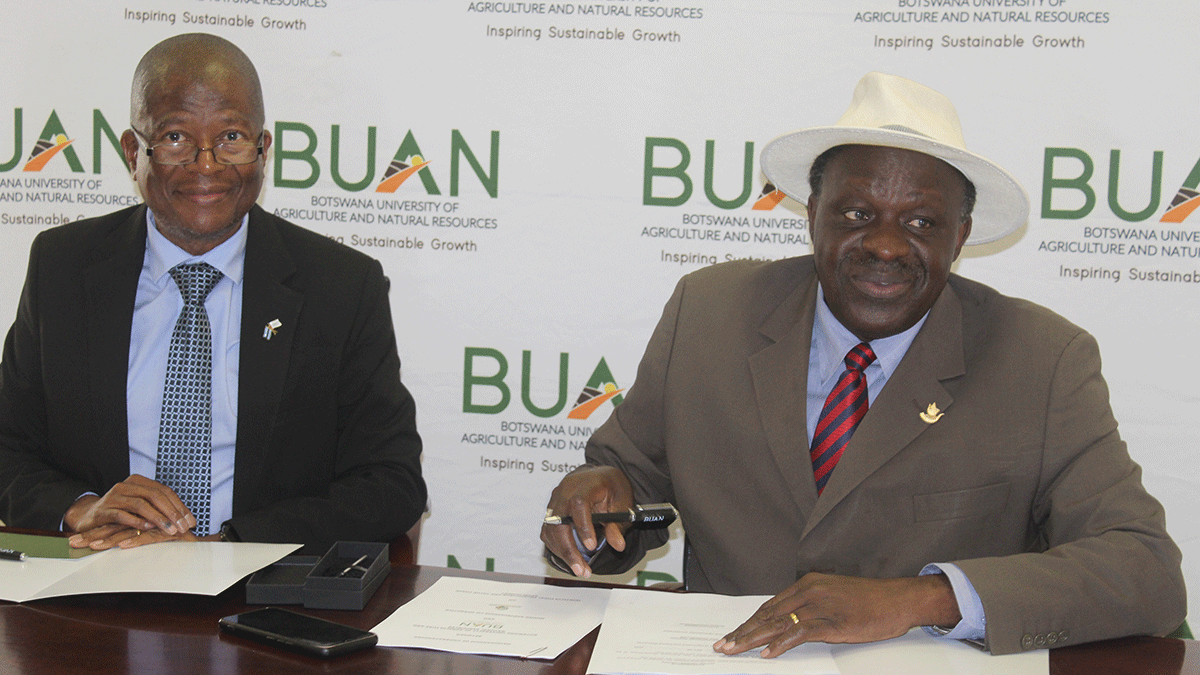Moeng Agribusiness Co-operative and BUAN join hands for food security
Moeng Agribusiness Co-operative have partnered with Botswana University of Agriculture and Natural Resources (BUAN) as part of their efforts to address the national food bill which is currently estimated at P1.2 billion.
The two partners signed a Memorandum of Understanding (MoU) on horticultural production and value chain development last Thursday. The MOU will allow BUAN to provide end-to-end technical support to Moeng in order to establish and undertake horticultural production at a commercial level. Moeng Co-operatives has acquired land in Serowe which they want to use for horticulture to feed the nation.
Speaking at the signing of the MOU, BUAN Vice Chancellor Professor Ketlhatlogile Mosepele said the food import bill has consistently hovered around the P1 billion mark for some time now.
He said this is a clarion call for the university to lead the charge in building a food and nutrition secure nation. Mosepele said producing graduates will not on its own make this achievable.
“The missing key word is knowledge translation and transfer. We need to work with communities across the country and share our expertise and knowledge for the benefit of all. We will continue to maximize our respective strengths and comparative advantages to compliment each other’s strategic work, particularly in horticultural production, efficient water use, sustainable use of resources and climate change resilience among others,” said Mosepele.
Representing Moeng, Dr Howard Sigwele said their co-operative was formed by Moeng College former students about two years back. He said they have since acquired some land in Serowe on a lease basis where this MOU will be tested.
“The contribution of agriculture to the country’s GDP is about 3% and it means we have not been doing well for more than 30 years. Currently the African Union expects its member states to produce 2000 kg per hectare or 2 tones and Botswana is below 500kg. The sector employs just 9.5% and that can be addressed by increasing productivity and making sure there is transfer of skills and knowledge. Through this collaboration, we are going to identify high value vegetables and fruits to sell for the domestic market,” said Sigwele.





